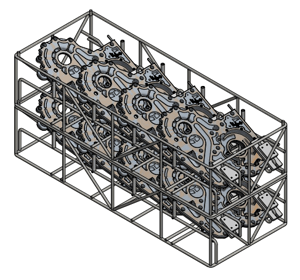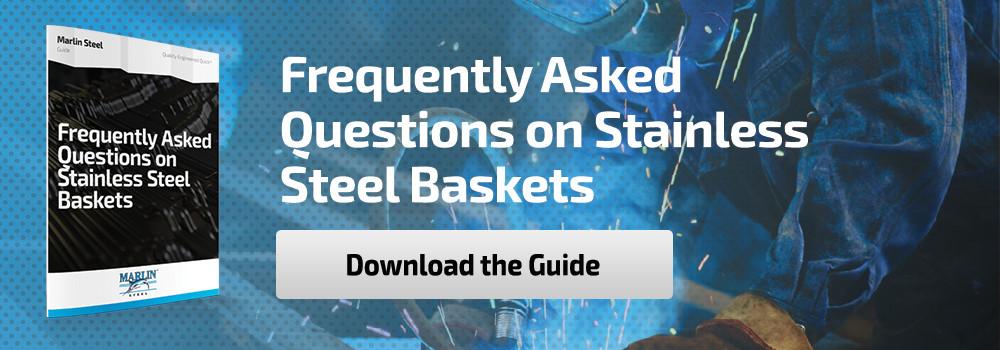 Aluminum is a very versatile material. It is used in automotive parts, medical parts, computer parts (especially heat sinks), aerospace components, and more because of its combination of excellent strength to weight ratio, corrosion resistance, high thermal conductivity, and recyclability. Part of the easy recyclability of aluminum is owed to the fact that it’s a chemical element rather than an alloy.
Aluminum is a very versatile material. It is used in automotive parts, medical parts, computer parts (especially heat sinks), aerospace components, and more because of its combination of excellent strength to weight ratio, corrosion resistance, high thermal conductivity, and recyclability. Part of the easy recyclability of aluminum is owed to the fact that it’s a chemical element rather than an alloy.
This metal is more delicate than some heavier metals and possesses a relatively low melting point for a metal—roughly 1,221˚F (660.3˚C) compared to grade 304 stainless steel’s melting point of 2,552-2,642˚F (1,400-1,450˚C). However, aluminum remains useful for many high-temperature and heavy-duty applications.
Recently, a company specializing in the manufacture of die cast aluminum parts for vehicle engines and other complex components approached Marlin Steel with a request for a custom stainless steel basket for a new line of aluminum components that they needed to get into production ASAP.
Building a Custom Stainless Steel Basket: Collecting Information
Before Marlin’s engineering team could start work on designing the perfect custom stainless steel basket for the client’s parts washing needs, they first needed to get some basic information about the client’s parts and the process that would be used to wash them. To this end, the engineering team sent the client a custom basket questionnaire that asked for relevant details, including:
- Dimensions of the parts to be washed.
- Maximum weight each basket would hold.
- Dimensions of any processing equipment the baskets would be used with.
- List of chemicals the basket would come into contact with.
- What types of automated sensors, if any, were used in the process.
- Which features (like stacking, handles, lids, etc.) the baskets would need to have.
- Operating temperatures for the basket and how long those temperatures would be maintained.
The more information that the client was able to provide in the custom basket questionnaire, the better-equipped Marlin’s engineers would be to create the ideal custom parts washing basket for the client’s needs.
Designing a Better Custom Parts Washing Basket
Once Marlin’s design team had the particulars of the client’s parts and parts washing process, work could begin on the design of the basket. For this particular custom stainless steel basket, the client needed something that could hold four 2.1kg (4.6 lb.) parts in a precise layout that incorporated an angle so any runoff from the washing process would drain away quickly and completely.
The washing process itself was not very intense—it involved a simple soap mixture in hot (162˚F) water for a little more than two minutes of agitation in a specialized parts washing machine. Once the parts were done being washed, the baskets would be stacked as they dried out.
With this in mind, Marlin’s engineers designed a steel wire basket with lots of open space and a series of four custom-shaped, angled slots to hold the client’s die cast aluminum components. These slots would have replaceable resin pads to help prevent the scuffing or scratching of held parts.
At the top of each basket would be a set of small pegs that would help seat the next basket atop it. Given how light each fully-loaded basket would be, and how strong the 0.313” thick steel used in the basket’s frame would be, the baskets could be stacked several units high without the risk of crushing or bending the basket at the bottom.
Since the baskets would be moved between processes by a conveyor belt, special attention had to be paid to the bottom of each basket to keep it from getting stuck on the belt. The wires of the basket were welded using gas metal arc welding (GMAW), a.k.a. MIG welding, equipment. The filler material from the MIG welder’s consumable electrode would help to create a strong bond for the thicker metal wires used in this basket.
Once the design was completed, Marlin’s engineering team ran the design through a Finite Element Analysis (FEA) program to identify any potential faults. If a fault was found, the design would be reworked to correct it. Only after the design passed the FEA test would it be passed on to the production team to turn into a physical product.
The advantage of this virtual testing was that it could be completed in mere moments. Another benefit is that it saved the client from having to deal with added tooling costs for what might be a rejected product.
Want to learn more about how Marlin Steel can help you with a custom manufacturing basket? Contact us today for a custom basket quote. For more information, download our guide to stainless steel baskets at the link below:



.gif)


